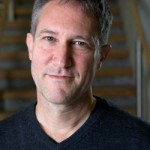 Not just independent but also integrated – the future for energy system operation
Not just independent but also integrated – the future for energy system operation
Matthew Lockwood, IGov Team, 4th March 2016
According to reports, the government is now actively thinking of removing the electricity system operator function from National Grid and establishing an independent not-for-profit SO instead. Over the last year, IGov has been arguing for the creation of an independent SO as part of a wider rethink of energy system governance – see here, here and here. One reason is about perverse incentives – currently National Grid is supposed to co-optimise transmission and system operation, but the profits from the former (£849 million in 2011/12) dwarf those from the latter (£9 million). This implies that if you really want system operation working in the public interest and not creating a distorted case for further transmission build out, then it is a good idea to separate the two more thoroughly. At the same time, Ofgem has struggled to find an effective incentive framework for Grid’s SO activities, which implies that regulation of a private SO is not the best approach. Many other countries also have not-for-profit ISOs which function well.
However, the most important argument for having an ISO is that it can act as a key delivery body not only for system security, but also for the transformation of the energy system towards a low-carbon, more decentralised future. This is because the system operator, unlike DECC or Ofgem, has the essential technical expertise and knowledge of the details of the system.
But this is also where a danger lurks. The government seems to be thinking about simply hiving off the electricity SO role from National Grid and running it independently. This is not enough; transformation of the energy system needs a far more integrated approach.
First, we need to abandon the old separation between transmission and distribution, because in future a lot more of the balancing of the system through local generation, storage and demand management will be happening at the distribution level. This may be achieved through distribution service provider platforms, but these need to be coordinated with the national SO. At the moment, the SO doesn’t really know what is happening below the grid supply point.
At the same time, both transport and heat are likely to become at least partly integrated into the electricity system. The future of the electricity system is bound up with the future use of gas, and the gas network, and indeed gas system operation. At the same time, it is becoming clear that we will need more heat networks in the UK, and that these should be regulated. Especially during a transition, evolution of electricity, heat, transport and gas should not only be thought about together, but also the operation of the systems should fit together.
The fact that government is rethinking the institutional arrangements for electricity system operation is a big opportunity for some joined up, longer-term thinking about how too deliver efficient system integration. This is an opportunity that should be grasped now. If it is not, it means that there will be more muddling through, involving higher costs, and the architecture will have to be changed again at some point in the not too distant future.
Related Posts
« Previous Presentation: The Future of the Electricity Utilities New Thinking: Women in Energy 2016 Next »







